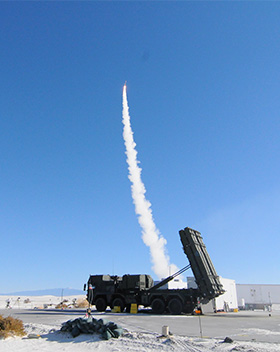In the run up to the September NATO Summit in Wales, leading experts addressed the transatlantic missile defense structure and its future. The panel discussion featured Robert Bell of the US mission to NATO, Alexis Morel of Thales, and Kurt Volker of the McCain Institute for International Leadership. The panel was moderated by John Rood of Raytheon.
Speaking on the topic of European cooperation regarding NATO missile defense, Bell highlighted the budgetary limitations across Europe. He commented that Europe continually chooses to divert funding away from missile defense programs, forcing the US to carry the majority of this burden, therefore not allowing the United States invest in new, upper-tier missile defense capabilities. For Bell, greater allied contribution to NATO missile defense, particularly in upper-level capabilities, is essential to the progression of missile defense collaboration in Europe.
Alexis Morel addressed the issues of burden sharing and NATO missile defense priorities. He stressed the importance of taking a fresh look at missile defense implementation and promoted the need for a multi-sensor approach that would create a network of sensors on both land and sea. For Morel, communication and sharing of missile defense resources and data is most important. Without it, allied nations have little incentive to increase contributions, which they will need to do face the threats emanating mostly from the Middle East, specifically Iran and Syria.
On US approaches to missile defense, Kurt Volker highlighted three key points. First, that missile defense should not be attached to other geopolitical issues such as the crisis in Ukraine. Second, that NATO needs to stay on course with its missile defense policy and not attempt to revert or modify it in response to recent changes in Russian behavior. Finally, Volker noted that the United States and Europe have fundamentally different perspectives on missile defense. This last point, for Volker, creates major problems for how to develop an Alliance-wide missile defense architecture. Volker concluded that the only a change in European threat perception would incentivize Europe to contribute more to NATO missile defense.
This panel was part of the Atlantic Council’s annual conference on the United States and Global Missile Defense which focuses on recent developments in missile defense architectures in Europe, the Middle East, and Asia and how global missile defense is likely to look in the year 2030.
